Nothing Phone (2a): an exclusive first look
Three years in the making, the Nothing Phone (2a) embodies the tech start-up’s ethos and aesthetic approach. We explore the genesis of the new design in an exclusive preview
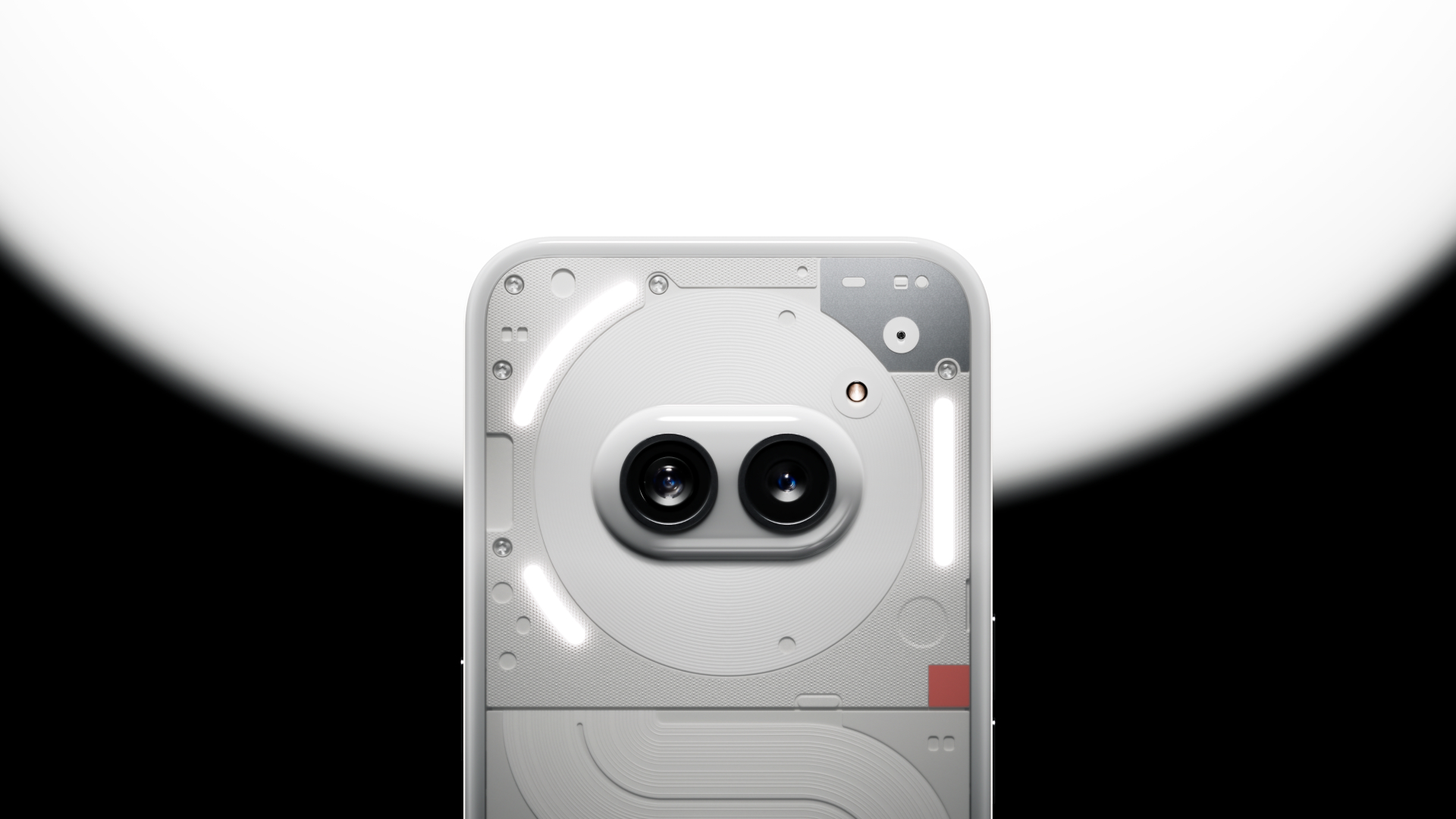
The Nothing Phone (2a) is, as its name suggests, a more evolutionary step on from the original Phone (1) and its successor, the Phone (2). However, the London-based technology company is not resting on its laurels. Still content to be a relative minnow in the colossal smartphone market (well over a billion handsets will be sold in 2024, as they have been every year for the past decade), Nothing uses its size to be hyper-mobile, with a direct pipeline from design to prototype to manufacture that’s simply impossible to manage in a global multinational.
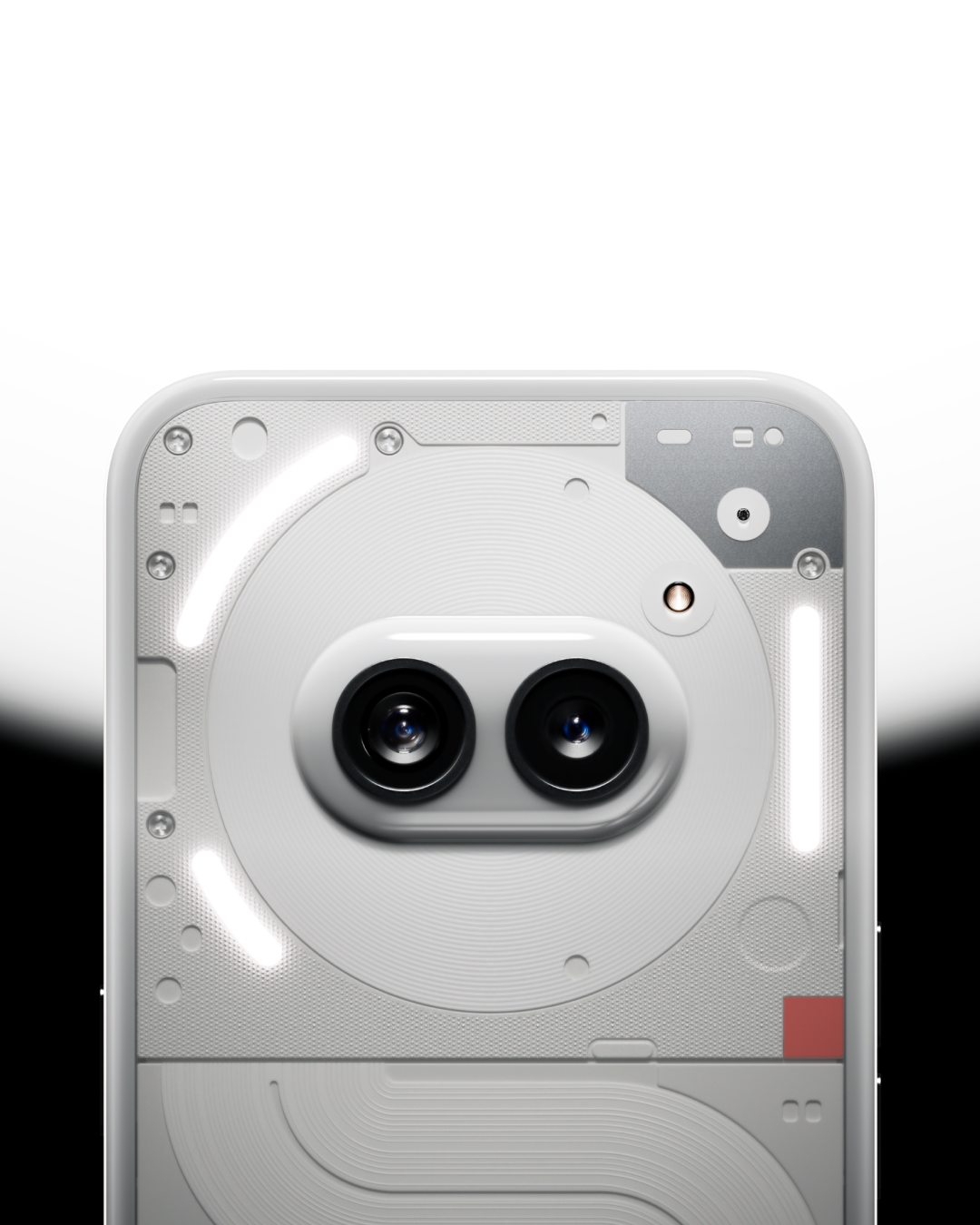
Nothing Phone (2a)
That’s not to say that the company, founded by Carl Pei in 2021, is remotely parochial. Teams in Taiwan and Shenzhen support the London HQ, benefitting from being at the cutting edge of component production and manufacturing. The company is still building capacity, with a team of industrial designers, engineers and technologists working together across a couple of open-plan floors of a converted King’s Cross warehouse, with prototyping machinery sitting alongside workstations, a small recording studio, and an enviable suite of Teenage Engineering’s modular Field desks, the brand being a close collaborator.
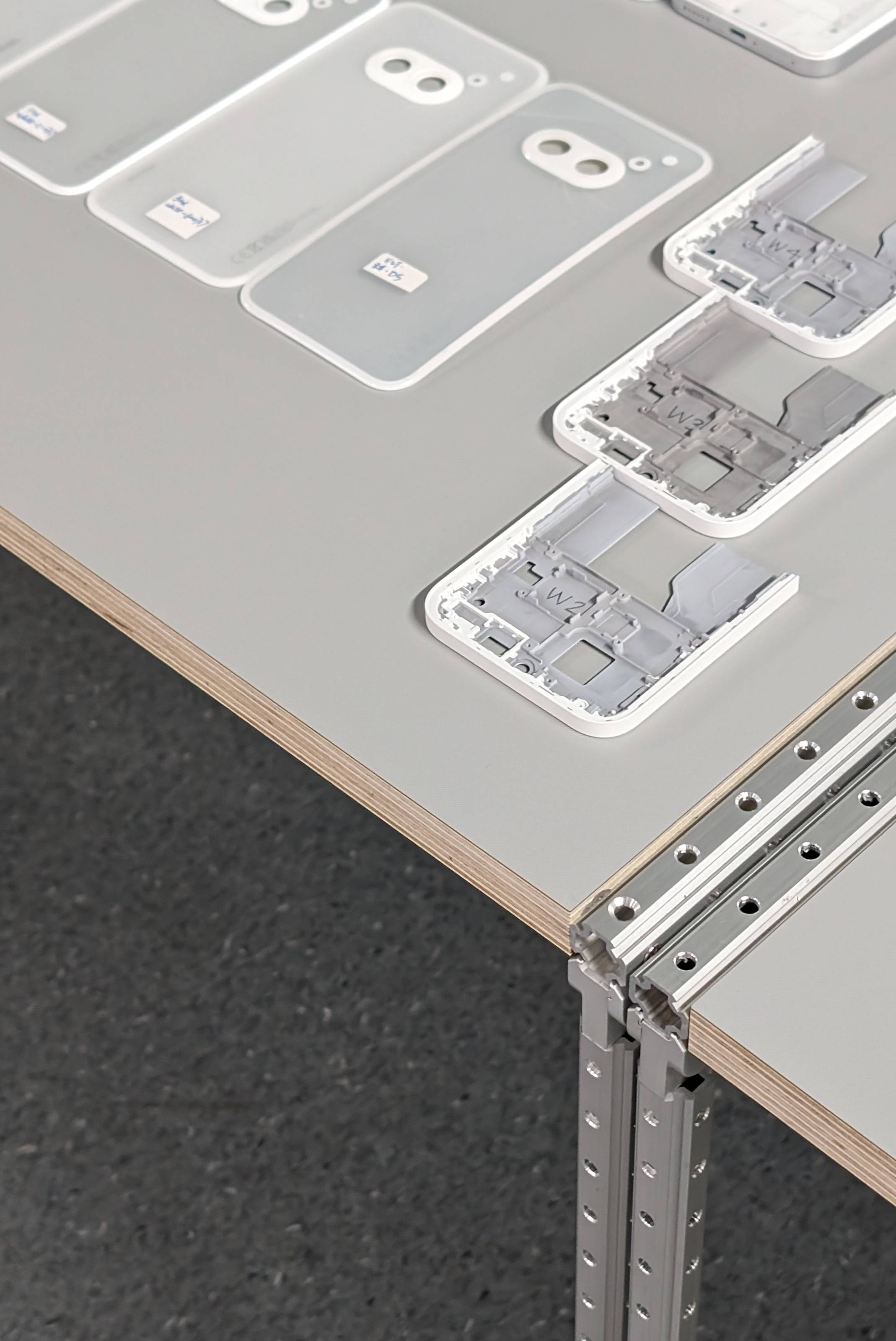
Nothing Phone (2a) prototypes
Shelving is awash with tech bits old and new, from discarded prototypes to a veritable arsenal of gadgets and gizmos from Teenage Engineering, and vintage electronics ranging from a Sports Walkman to a Gameboy. You’ll even find a Sinclair C5, apparently a gift from Teenage Engineering to the Nothing team.
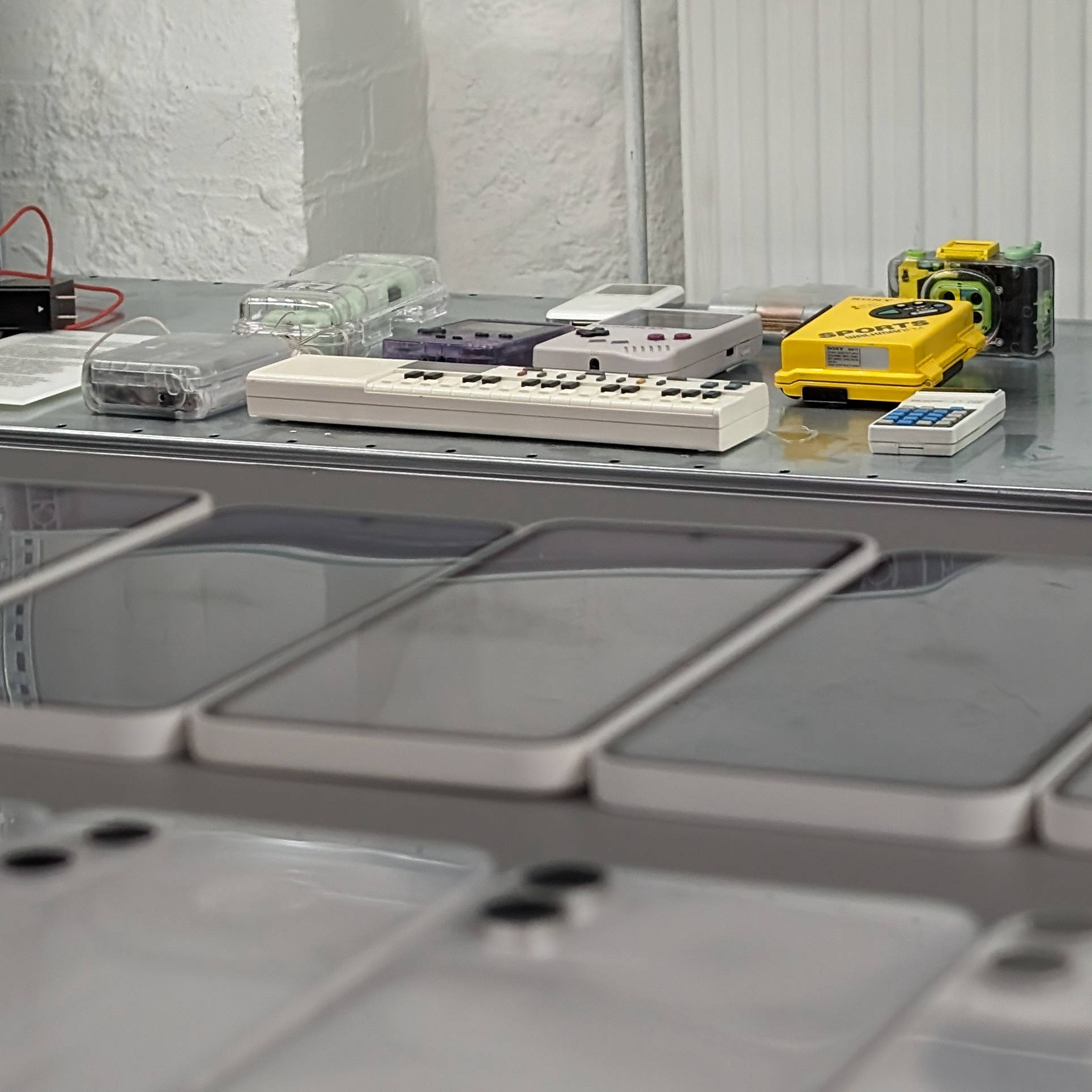
Nothing Phone (2a) prototypes and the studio's design collection
‘[The C5] captures the optimism of tech,’ says Nothing’s design director Adam Bates (a Dyson alumnus). Working alongside Industrial Design lead Chris Weightman, Bates is not only steering Nothing’s innovative aesthetic, but building up the company’s capability for in-house prototyping. ‘We want to be able to hand over more mature ideas,’ he explains. ‘Making things is important to us – it’s a big part of our process.’
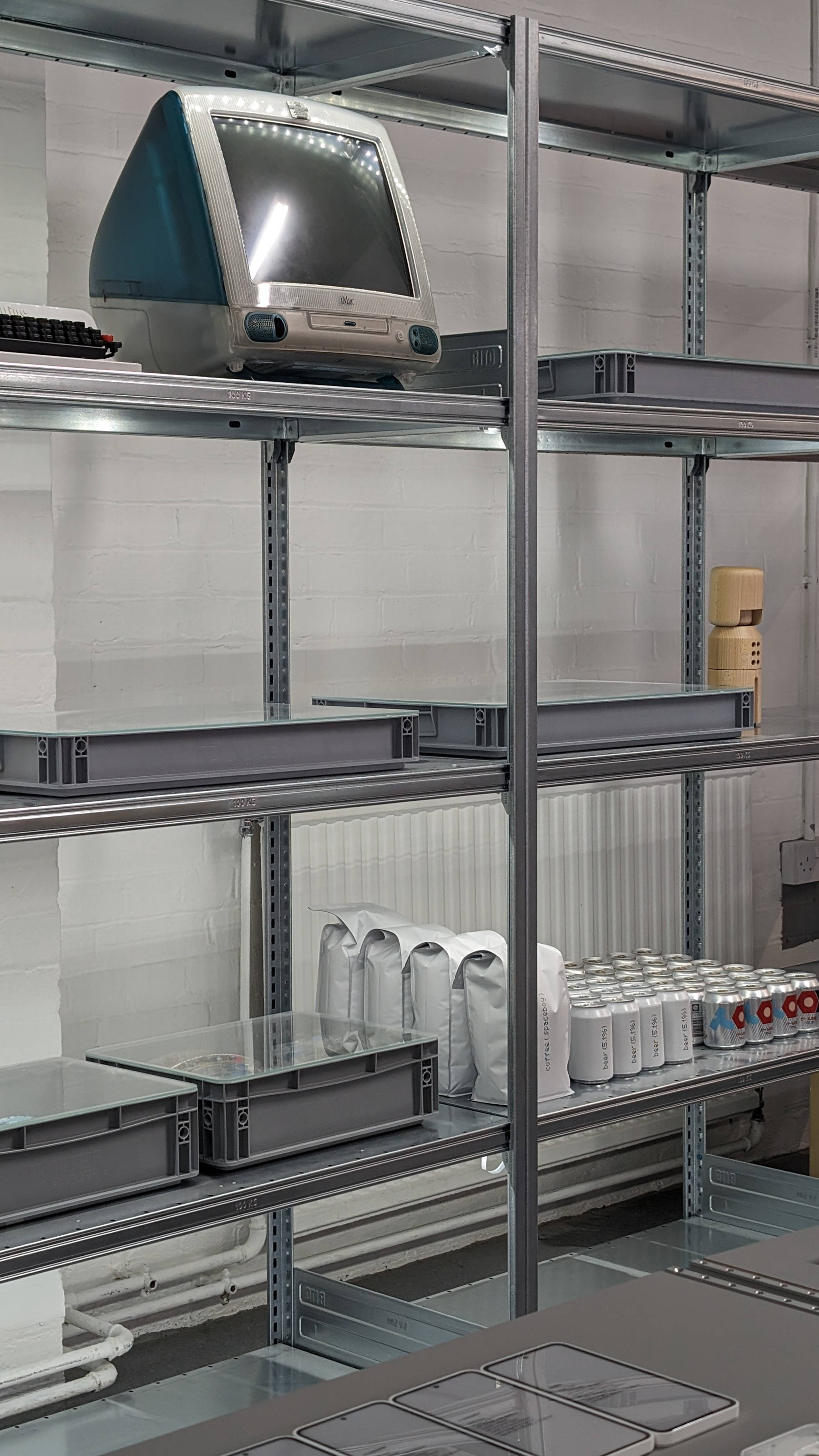
At home at the Nothing studios
As well as 3D printers, there’s a proper CNC milling machine that can fabricate in materials as diverse as foam and aluminium, as well as a spray booth and laser cutter. All this kit is necessary to iterate the many stages of a mobile device. While final, finished prototypes are typically made by specialist model makers, Nothing reckons it’ll be able to get ‘very close’ in due course.
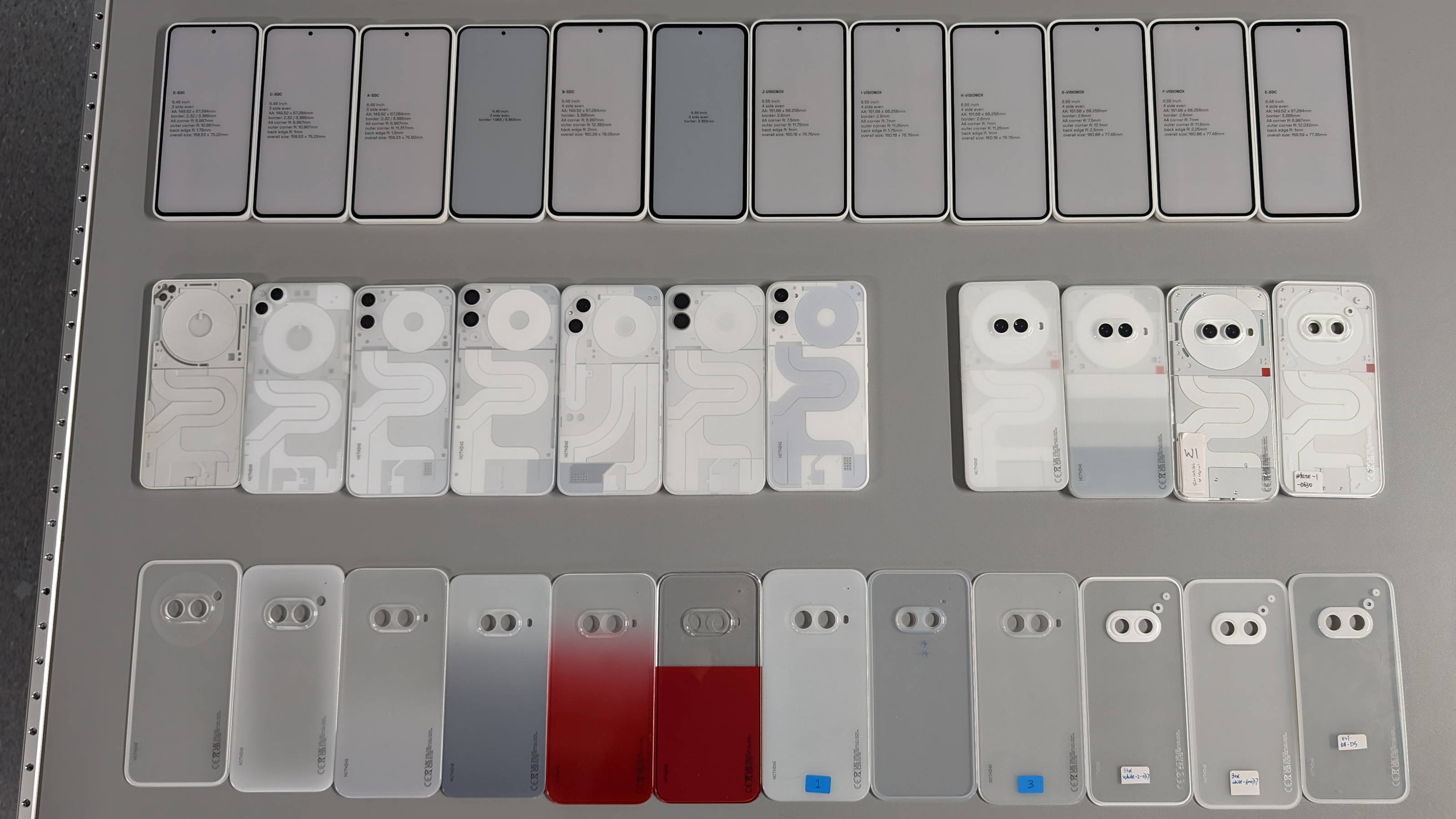
Nothing Phone (2a) prototypes
On the table before us is a spread of dummy devices, representing the evolution of Phone (2a). A natural break in the line-up shows where the team diverted their energies elsewhere before returning to the project. It also marks the point where the (2a)’s distinctive dual camera ‘eyes’ made their first appearance on the design, eventually evolving into the friendly anthropomorphic object you see before you.
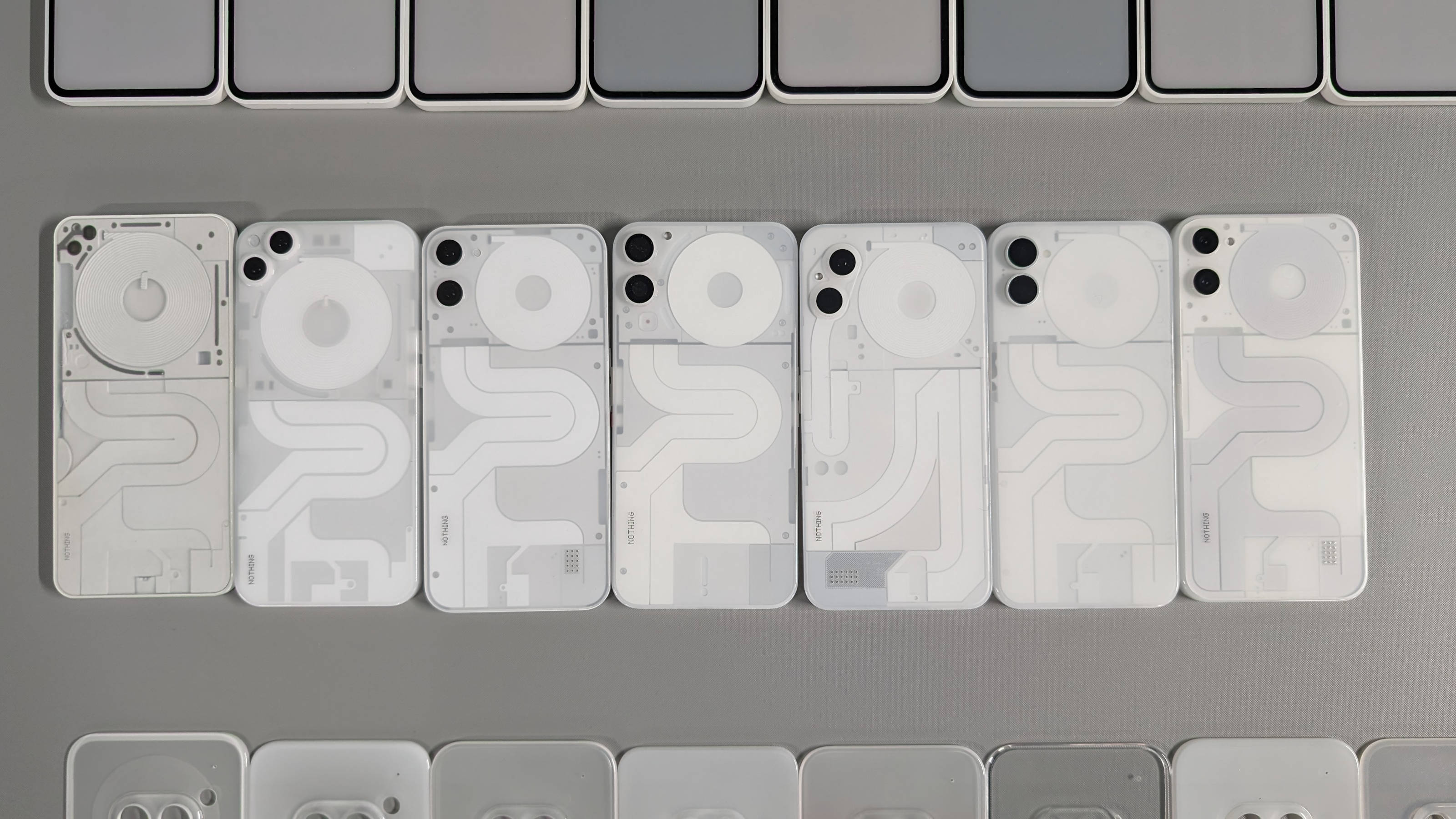
Nothing Phone (2a) prototypes
As before, the new phone has a very different approach to case design. Nothing’s signature transparency adds another layer of ‘design’, not quite laying bare the internal electronics, but indicating a schematic of how and where the phone’s components are arranged. ‘We want to be a company that does things differently,’ Bates says. ‘We’re looking to find how Nothing expresses itself in all these different areas.’
Receive our daily digest of inspiration, escapism and design stories from around the world direct to your inbox.

Nothing Phone (2a) prototypes, approaching the final design
To date, alongside its two phones, Nothing also makes the excellent ear (2) and ear (stick) in-ear headphones (and from 18 April 2024 the Nothing Ear and Nothing Ear (a) earbuds). Phone (2a) is the Nothing expression of an ‘affordable flagship’, industry shorthand for a high-spec model that exploits falling component prices and pairs them with less expensive finishes to open up a new price point.
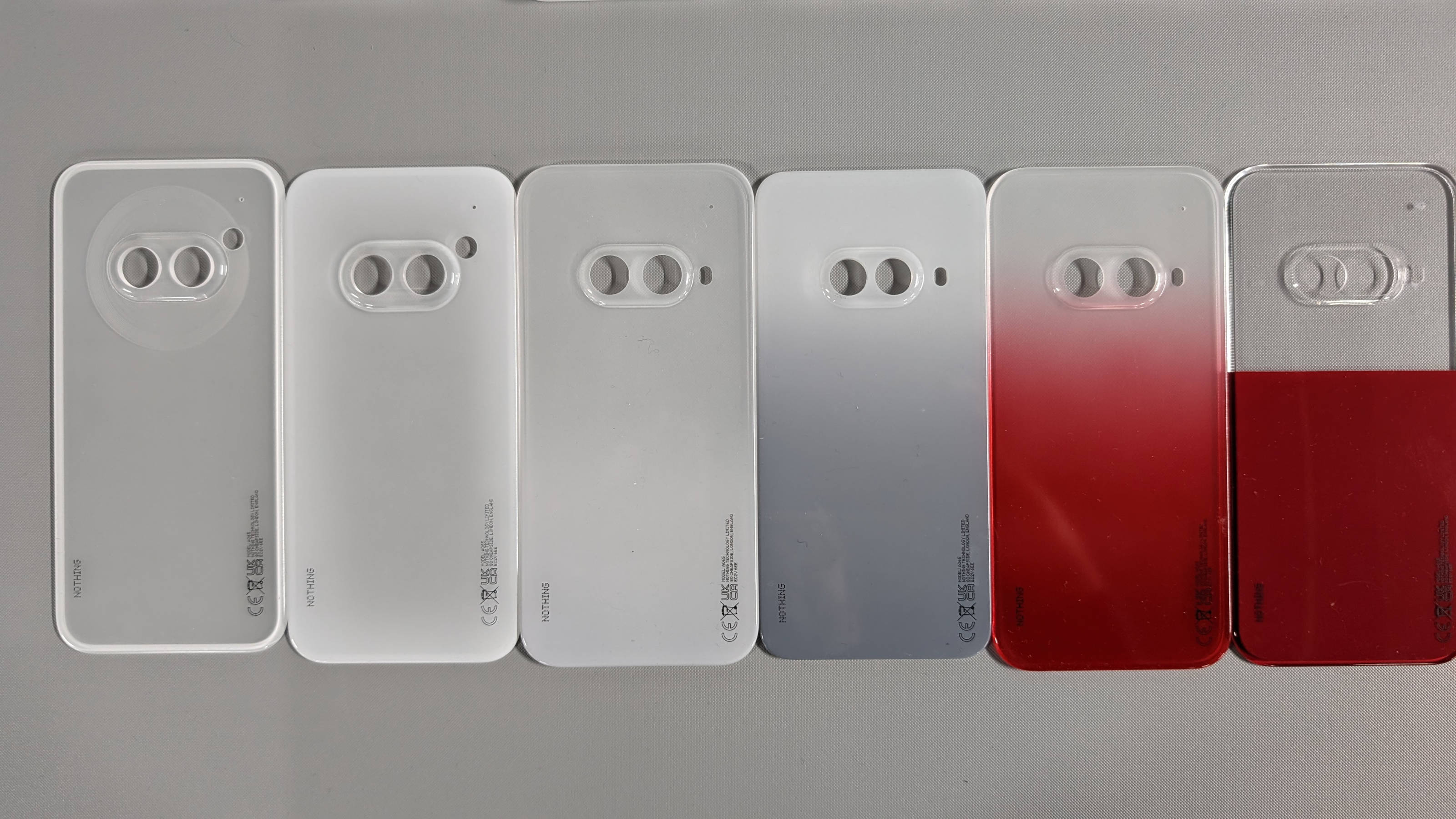
Nothing Phone (2a) case prototypes
The new phone is especially notable for its high-density polycarbonate rear, complete with what Nothing calls a ‘triple anti fingerprint coating’. Unlike its glass-backed predecessors, the use of polycarbonate allows for a more rounded and smooth finish, which is turn has durability benefits. Inside, the circuitry is arranged on a 100 per cent recycled aluminium midframe, a fiendishly complex but entirely hidden component that epitomises the industrial designer’s challenge: how to express progress and values even when something is concealed from view.
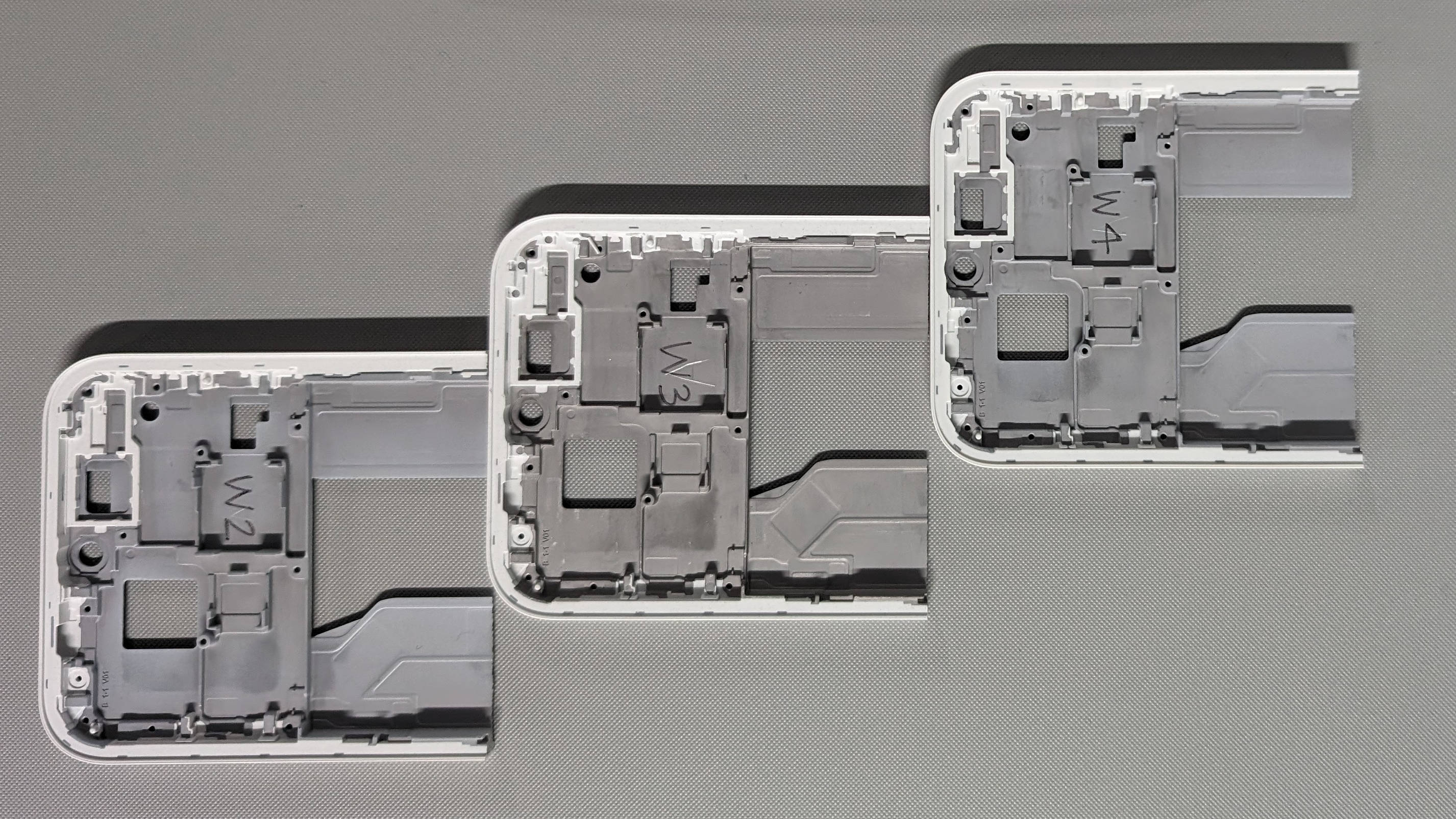
Nothing Phone (2a) chassis prototypes, made from recycled aluminium
‘The aesthetic is really driven by the engineering,’ says Chris Weightman. ‘The design ideas were about getting under the skin of the device.’ As we previously noted, one of the original inspirations behind the Nothing aesthetic was the 1972 New York Subway map by Massimo Vignelli and Bob Noorda.
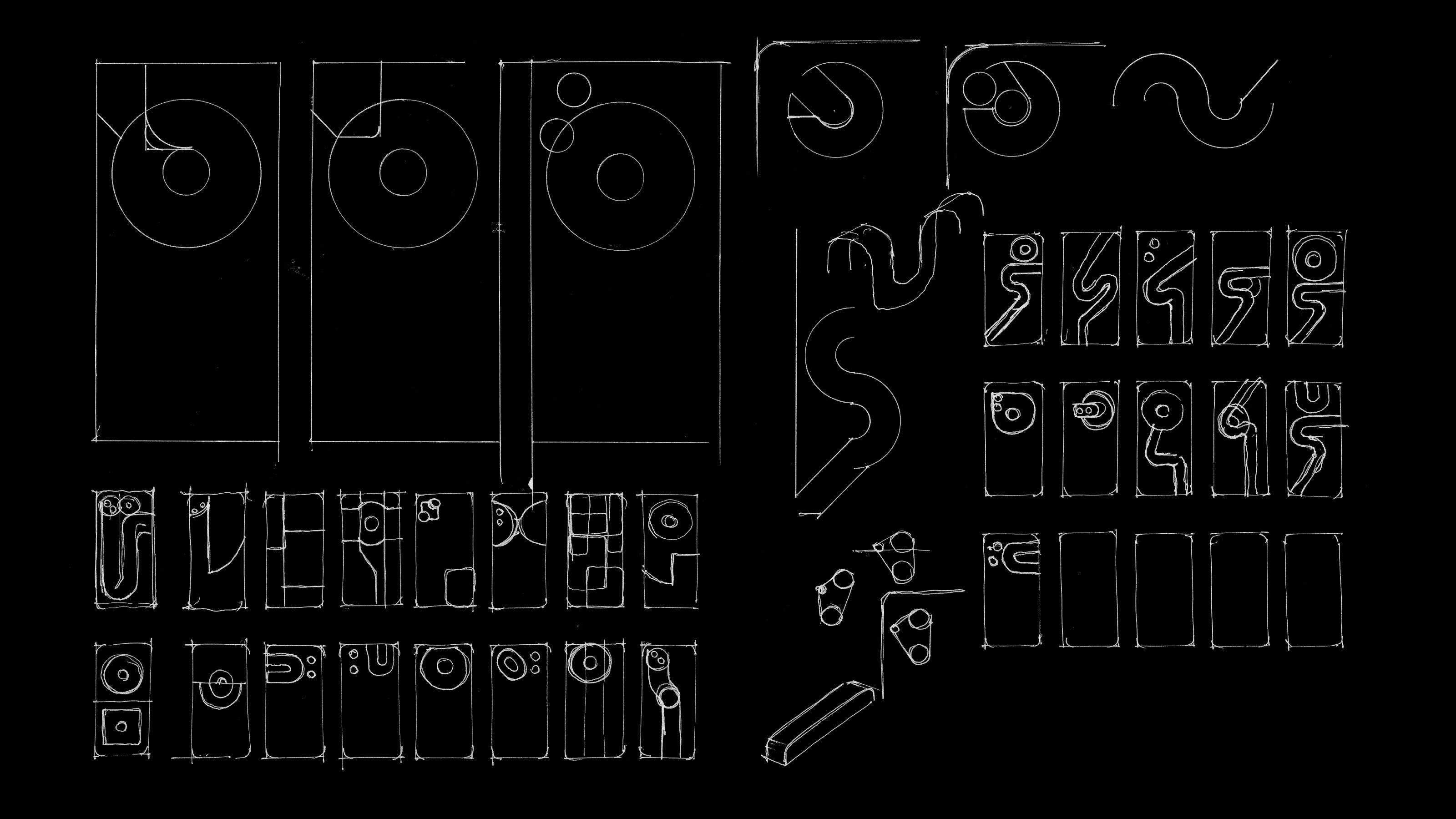
Nothing Phone (2a) concept sketches
‘Our top aspiration was that we show the bare engineering,’ Weightman says, noting that while somewhat stylised, the elements beneath the transparent case highlight the location of the camera module, the charging coil, and the ribbon connectors that link the various components together. Bates adds that ‘we try to capitalise on idiosyncrasies where we can – we’re always balancing things. If the engineering is right, then it’ll look right.’
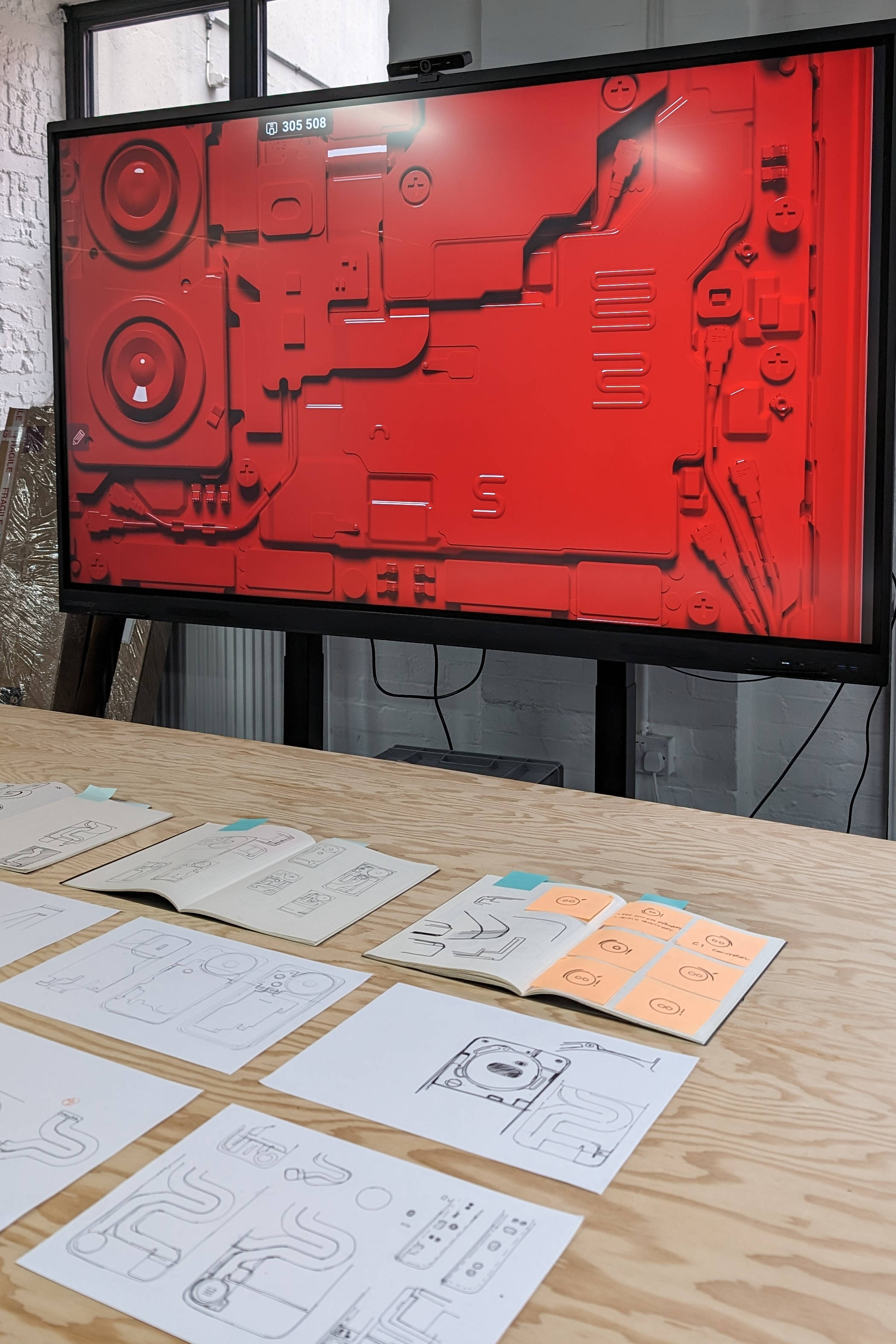
Original design sketches for Phone (2a)
Creating anything new is rarely a case of starting with a blank sheet of paper. While the specs have yet to be revealed, Phone (2a) builds upon Nothing’s established eco-system of suppliers and manufacturers; there is a world of complexity within this compact object and the design process has to reflect this. ‘It’s a bit of a chicken and egg situation when it comes to designing the aluminium chassis,’ Weightman admits. Other elements, such as experiments with a slightly milky finish of the polycarbonate and splashes of Nothing’s signature red, were also honed and refined throughout the prototyping process.
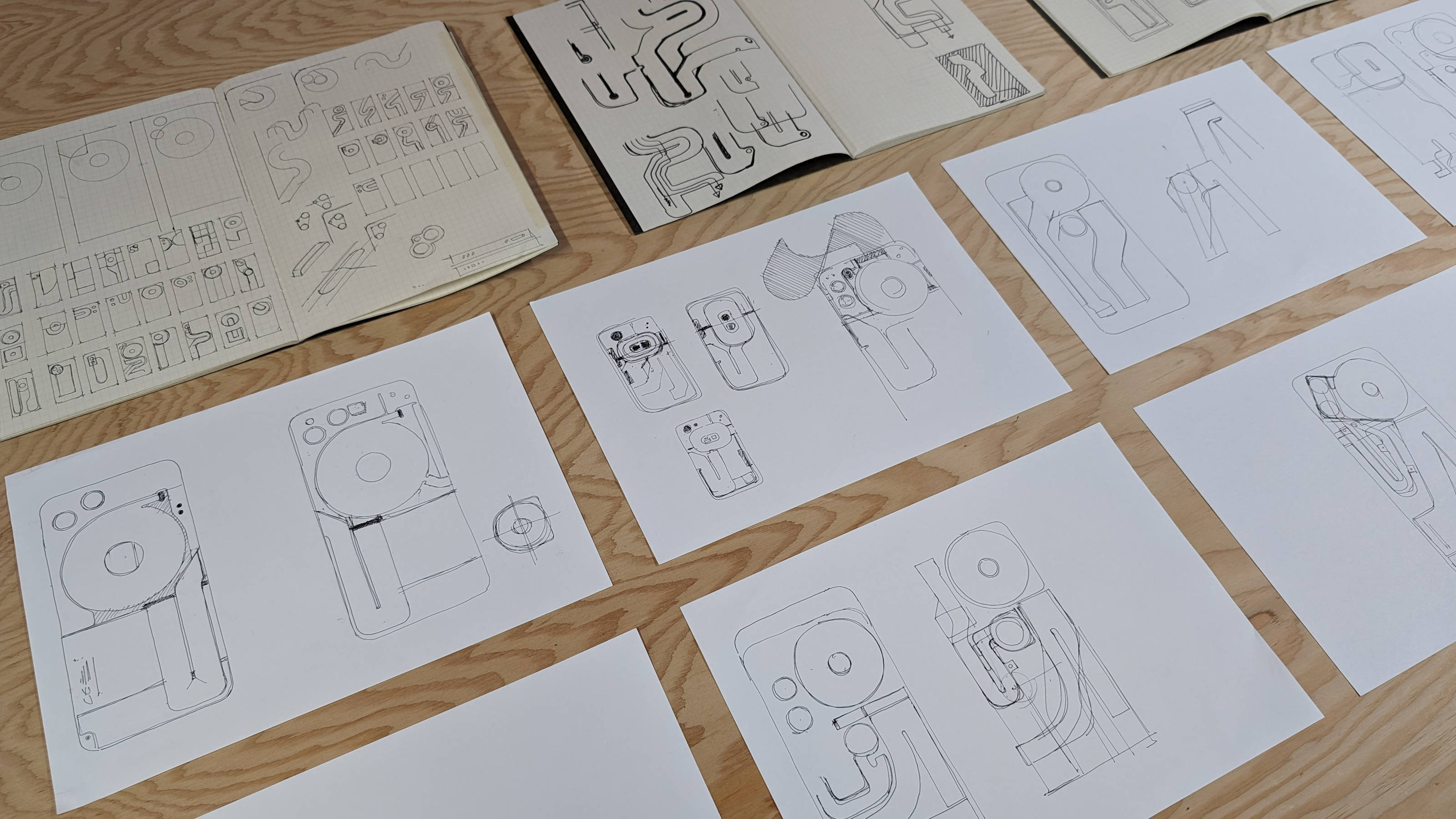
Original design sketches for Phone (2a)
Once the design was finalised, the company sent out around 500 units for a relentless internal testing process. Over a period of months, the hardware and software is given a thorough going over. The latter is no less important. The newest version of Nothing’s operating system will power the (2a), dovetailed precisely with the hardware.
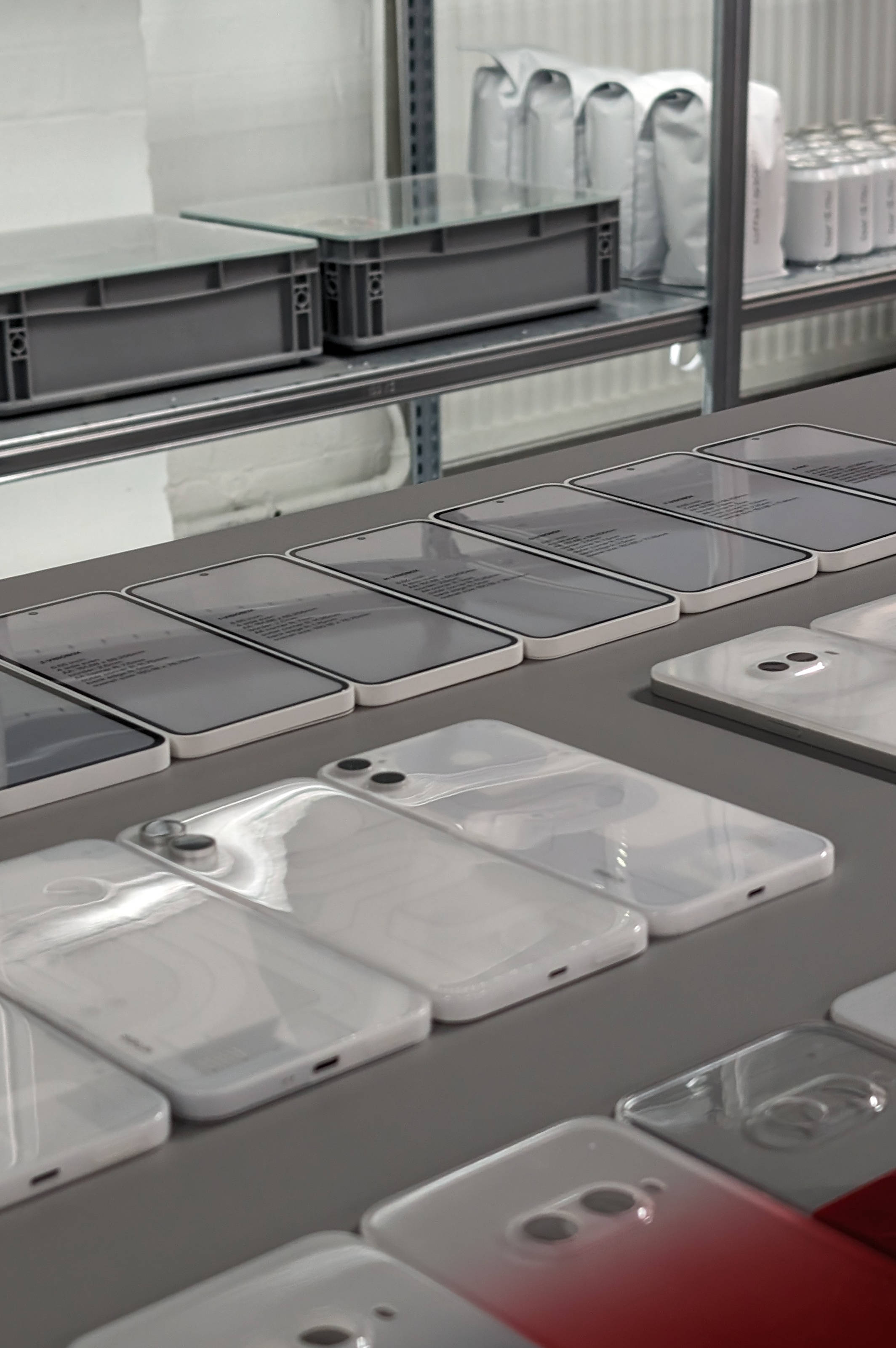
Nothing Phone (2a) prototypes
Elements like the light-up rear ‘glyphs’, a signature part of the Phone (2) look, have been refined, along with the ringtones that trigger them. There’ll also be a full suite of Nothing-specific apps that make good use of the company’s refined design language. The packaging, which features a colour render of the phone within, has also been stripped back and remains plastic free as before.
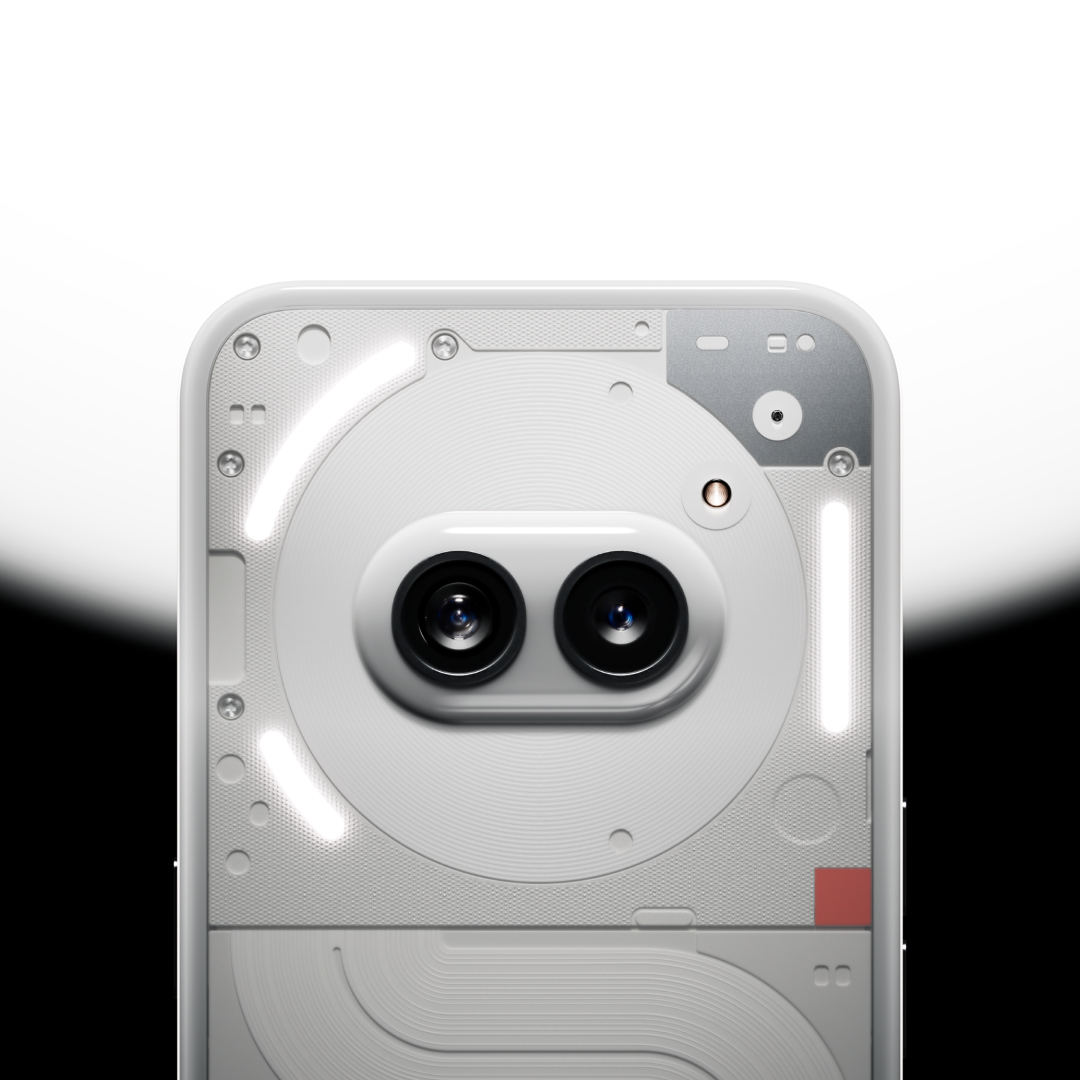
The new Nothing Phone (2a)
Nothing’s ethos and approach are refreshing in an industry spearheaded by trillion-dollar companies and usually cloaked in a thick veil of secrecy. By comparison, Nothing feels nimble and dynamic, with a playful aesthetic to match. Phone (2a) should strengthen the brand’s hand and show that diversity and difference can still exist in such a high-stakes industry. Bates acknowledges that things like component costs and build slots are all trickier to secure in the face of the industry behemoths. ‘You have to work in a different way when you’re small, and that makes you more creative,’ he concludes.
Read our review of Nothing's new earbuds.
Nothing Phone (2a) will be available from Nothing.Tech, @nothing
Jonathan Bell has written for Wallpaper* magazine since 1999, covering everything from architecture and transport design to books, tech and graphic design. He is now the magazine’s Transport and Technology Editor. Jonathan has written and edited 15 books, including Concept Car Design, 21st Century House, and The New Modern House. He is also the host of Wallpaper’s first podcast.